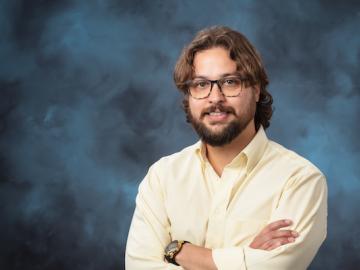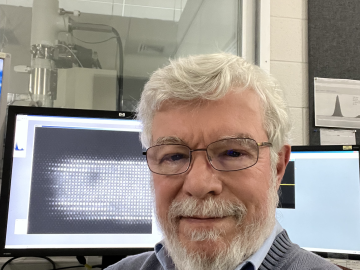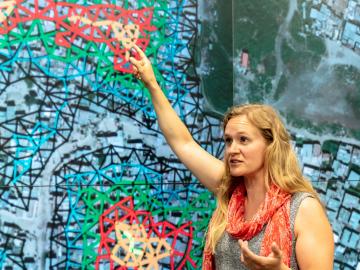
Filter News
Area of Research
- (-) Computer Science (2)
- (-) Materials (68)
- (-) National Security (13)
- Advanced Manufacturing (14)
- Biological Systems (1)
- Biology and Environment (23)
- Building Technologies (1)
- Computational Biology (2)
- Electricity and Smart Grid (2)
- Energy Science (90)
- Fusion and Fission (19)
- Fusion Energy (9)
- Isotopes (9)
- Materials for Computing (12)
- Neutron Science (79)
- Nuclear Science and Technology (30)
- Nuclear Systems Modeling, Simulation and Validation (1)
- Quantum information Science (3)
- Sensors and Controls (1)
- Supercomputing (30)
- Transportation Systems (1)
News Type
News Topics
- (-) 3-D Printing/Advanced Manufacturing (11)
- (-) Biomedical (5)
- (-) Grid (8)
- (-) Materials Science (36)
- (-) Microscopy (12)
- (-) Molten Salt (1)
- (-) Neutron Science (14)
- (-) Nuclear Energy (14)
- (-) Partnerships (4)
- (-) Space Exploration (2)
- Advanced Reactors (2)
- Artificial Intelligence (14)
- Big Data (10)
- Bioenergy (5)
- Biology (3)
- Biotechnology (1)
- Buildings (4)
- Chemical Sciences (11)
- Clean Water (3)
- Composites (6)
- Computer Science (30)
- Coronavirus (4)
- Critical Materials (5)
- Cybersecurity (9)
- Energy Storage (14)
- Environment (12)
- Exascale Computing (1)
- Fusion (4)
- High-Performance Computing (5)
- Isotopes (8)
- Machine Learning (13)
- Materials (32)
- Mathematics (1)
- Nanotechnology (16)
- National Security (23)
- Physics (12)
- Polymers (10)
- Quantum Computing (2)
- Quantum Science (3)
- Security (6)
- Simulation (1)
- Summit (3)
- Transportation (11)
Media Contacts

In human security research, Thomaz Carvalhaes says, there are typically two perspectives: technocentric and human centric. Rather than pick just one for his work, Carvalhaes uses data from both perspectives to understand how technology impacts the lives of people.

Researchers at ORNL explored radium’s chemistry to advance cancer treatments using ionizing radiation.

Larry Allard, a distinguished research staff member at Oak Ridge National Laboratory, has been named a Fellow of the Microanalysis Society.

How an Alvin M. Weinberg Fellow is increasing security for critical infrastructure components

ORNL researchers used the nation’s fastest supercomputer to map the molecular vibrations of an important but little-studied uranium compound produced during the nuclear fuel cycle for results that could lead to a cleaner, safer world.

A team of researchers has developed a novel, machine learning–based technique to explore and identify relationships among medical concepts using electronic health record data across multiple healthcare providers.

A study led by researchers at ORNL could help make materials design as customizable as point-and-click.

Unequal access to modern infrastructure is a feature of growing cities, according to a study published this week in the Proceedings of the National Academy of Sciences

Neuromorphic devices — which emulate the decision-making processes of the human brain — show great promise for solving pressing scientific problems, but building physical systems to realize this potential presents researchers with a significant

Oak Ridge National Laboratory, University of Tennessee and University of Central Florida researchers released a new high-performance computing code designed to more efficiently examine power systems and identify electrical grid disruptions, such as


